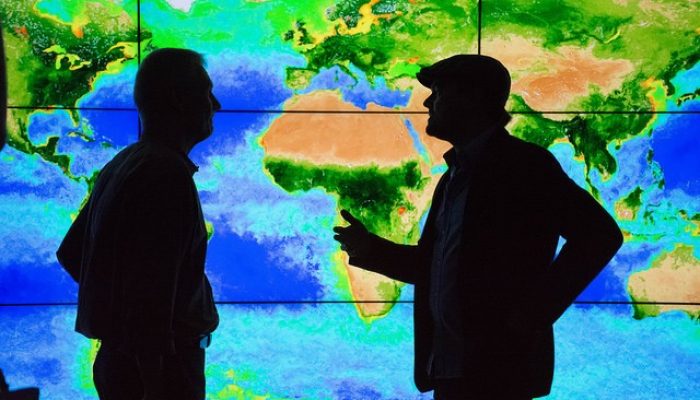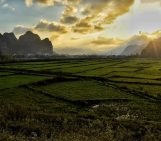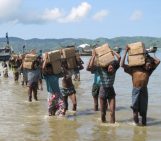Each month, Jesse Zondervan picks his favourite posts from geoscience and development blogs/news which cover the geology for global development interest. This past month’s picks include: Why it’s so hard to predict tsunamis, which climate adaptation methods are on the rise in 2019 & opportunities for scientists to solve local challenges with Thriving Earth Exchange.
Plastic waste in the oceans and on beaches visibly smashes itself back in our faces to trouble our consciences after attempts to dump and hide the consequences of human waste-production. The size of our triggered guilt aside, how does our plastic problem quantitively compare in scale to the problem of carbon dioxide emission? You may be surprised, or not.
More significantly, climate adaptation, rather than prediction or prevention, takes the foreground at the start of 2019. In a long-read worth having a cup of tea over, National Geographic reports ways of adaptation gaining steam, such as the American Geophysical Union’s Thriving Earth Exchange, a sort of tinder for scientists and communities facing challenges related to natural resources, climate change and natural hazards issue (see whether you can help!).
“The American Geophysical Union’s Thriving Earth Exchange, a sort of tinder for scientists and communities facing challenges related to natural resources, climate change and natural hazards issues”
In addition, consider the following about adaptation: if you want to built a sustainable water-energy-food nexus, how do you manage or cope with migration? After all, even though development efforts might be thwarted, migration is a very efficient coping mechanism. Tellingly, both America and Bangladesh have started relocating flooded communities.
In disaster risk, we are looking back at 2018:
When a tsunami triggered by a landslide caused by the Anak Krakatau eruption in Indonesia bypassed the tsunami-warning system put in place to warn for earthquake-induced tsunamis, the world was once more reminded of our inability to predict all hazards, and its consequences.
However, studies like the one which uncovered a historic South China Sea tsunami from the geological record help to dust off our hazy memories of such events. Timely, since large infrastructural projects like the Belt and Road initiative are in full swing planning harbours and nuclear plant locations.
While insurance company Munich Re captured the world’s natural disasters of 2018, the fourth-costliest year since 1980, in numbers, the Bank of England plans to test climate resilience of UK banks.
As usual, there is a lot to check out, so go ahead!
Climate Adaptation
Once derided, ways of adapting to climate change are gaining steam by Andrew Revkin at National Geographic
Water – Energy – Food – Migration Nexus
Water-Migration nexus and the human displacement discourse by Nidhi Nagabhatla at Future Earth blog
Hike in record-dry months for Africa’s Sahel worries scientists by Laurie Goering at BRACED
How technology is helping farmers predict and prepare for El Niño by Michael Hailu at Thomson Reuters Foundation
Sea-level migration
In first, Native American tribe displaced by sea gets land to relocate by Sebastien Malo at Thomson Reuters Foundation
Bangladesh lends land to islanders as water devours homes by Rafiqul Islam at Thomson Reuters Foundation
Bracing for climate change – a matter of survival for the Maldives by Hartwig Schafer at End Poverty in South Asia
Climate Change
The Ocean Garbage Patch Is Tiny Compared to Our Carbon Footprint by Sarah Burns at State of the Planet
Disaster Risk
Why the ‘Child of Krakatau’ volcano is still dangerous – a volcanologist explains by Thomas Giachetti at The Conversation
The Anak Krakatau Tsunami, from the Beginning until Now by Dana Hunter at Scientific American
Scientists say a tsunami hit China 1,000 years ago – and there’s still a risk of a giant wave hitting today by Martin Choi at the South China Morning Post
The natural disasters of 2018 in figures by Petra low at Munich Re
Bank of England plants to test climate resilience of UK banks at Acclimatise
External Opportunities
CfP – 2019 Mexico Conference on Earth System Governance
Multiple positions in the field of climate adaptation governance (post-doc and doctoral researchers)
Seeking Book Proposals on Water, Green Infrastructure, Climate Change Adaptation, and Public Health
Check back next month for more picks!
Follow Jesse Zondervan @JesseZondervan. Follow us @Geo_Dev & Facebook.





